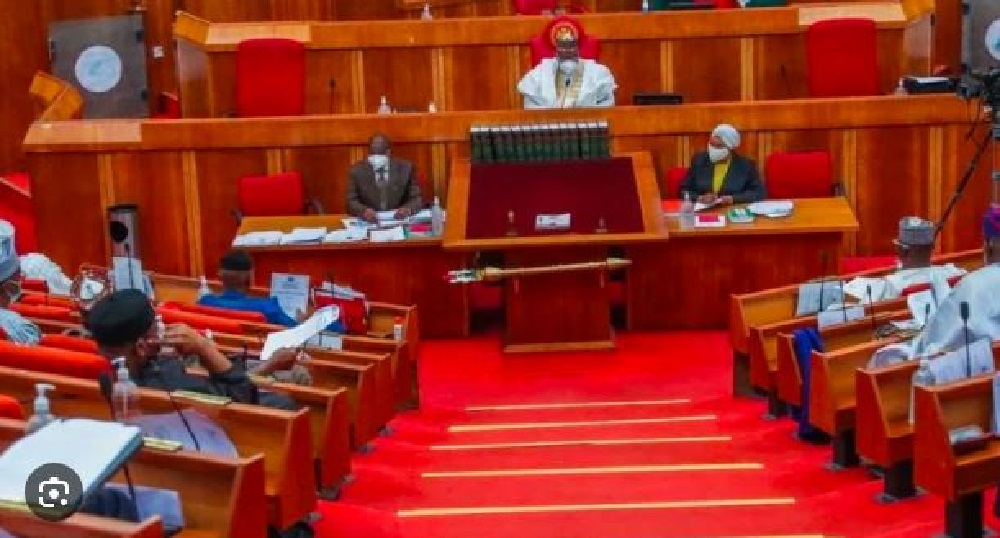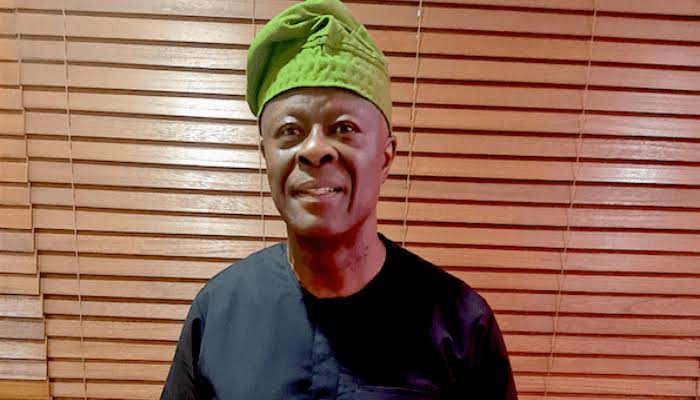News
Senate passes South-South Development Commission Bill

The Senate yesterday passed the South South Development Commission (SSDC) Bill.
It also passed amendments to the Acts Establishing the North West Development, South East Development Commission, South West Development Commissions to make provisions for geopolitical representations.
The passage came less than 24 hours after the Federal Executive Council (FEC) renamed the Niger Delta Ministry as the Ministry of Regional Development to oversee Niger Delta Development Commission (NDDC) and the Development Commissions in the six geo-political zones.
Yesterday’s resolution of the Senate followed its consistent and adoption of the recommendations of its Committee on Special Duties, chaired by Senator Kaka Shehu.
The resolution was on the Shehu-led committee report on the Bill titled: “A Bill for an Act to Establish South South Development Commission charged with the responsibility to receive and manage funds from the Federation Account Allocation and other sources, donations, grants, aids for the integration, development, resolution of infrastructural deficit, militancy, communal crises as well as tackle ecological, environmental problems; and for related matters, 2024.”
The Bill was sponsored by All Progressive Congress (APC) Cross River South Senator Asuquo Ekpenyong.
The Bill was co-sponsored by all Senators from the South South including Senate President Godswill Akpabio, Sampson Ekong Akpan, Etim Aniekan Bassey, Sunday Benson Agadaga and Konbowei Friday Benson.
Others are: Henry Seriake Dickson, Jarigbe Agom Jarigbe, Eteng Jonah Williams, Ede Dafinone, Thomas Joel-Onowakpo, Munir Chinedu Nwoko, Neda Imasuen, Monday Okpebholo, Adams Aliyu Oshiomhole, Heacho Allwell Onyesoh, Ipalibo Harry Banigo and Barinada Barry Mpigi.
There was however heated arguments among senators on source of funding for the various zonal development commissions created by the National Assembly.
Besides, the Senate during the consideration, struck out provisions in Section 23 of the bills conferring operational immunity on board and executives of the commissions.
Arguments on approval of source of funding recommended for the commission among Senators arose during clause by clause consideration of the SSDC Bill.
The Senate Committee on Special Duties had in its report, recommended that 15 per cent of statutory allocations of member States in a commission, should be used to fund the commission by the federal government.
But some senators like Senator Yahaya Abdullahi (PDP – Kebbi North), Wasiu Eshinlokun (APC – Lagos East) and Seriake Dickson (PDP – Bayelsa West) objected to the recommendation.
Specifically, Senator Yahaya Abdullahi said the provision would lead to litigation against the federal government from state governments as no state would like its statutory allocation to be tampered with in the process of funding a zonal development commission.
“The 15 per cent of statutory allocations of member states recommended for funding of the zonal development commissions would be litigated against by some state governments,” he said.
In a bid to quickly correct the meaning read into the 15 per cent statutory allocation of the state by Senator Abdullahi and many other Senators who indicated interest to comment, the Deputy President of the Senate, Barau Jibrin, quickly rose to correct their impression.
Senator Barau in his explanation told the Senate that the 15 per cent statutory allocation of member states for funding of the zonal development commissions would not lead to any deduction from their statutory allocations.
“The 15 per cent of statutory allocation of member states recommended for funding of zonal development Commissions by the federal government, is not about deduction at all.
“What is recommended as contained in the report presented to us by the committee on Special Duties and being considered by the Senate now, is that 15% of statutory allocation of member states in a zonal development commission would by way of calculation by the federal government, used to fund the commission from the Consolidated Revenue Fund.
“Each state has monthly statutory allocation, 15 % of which as contained in this report being considered, will be calculated by the federal government and removed from the consolidated Revenue Fund for funding of their development commission,” Barau said.
Despite Barau’s explanation, many senators, who were not swayed, indicated their interest to speak but were prevented from doing so by the President of the Senate who said the provision was in order as constitutionally supported.
He said: “We don’t need to be debating on whether 15% statutory allocation of member states in a commission would be deducted or not in view of provisions of section 162 (subsection 4) of 1999 constitution which empowers the National Assembly to appropriate from either the Consolidated Revenue Fund or Federation Account.
“Fifften15 % of statutory allocation of member states, has been recommended by the Senate and by extension, National Assembly, for funding of their zonal development commission by the federal government, anybody who want to go court over that may do so.”
Barau consequently put the question on adoption of the provision to voice vote and ruled that the ‘ayes have it’.
In his remarks after the passage of the bills, Akpabio thanked his colleagues for spending several hours on final consideration and passage of the SSDC Bill and amendments of the Zonal Development Commissions Acts which according to him, would serve as bedrock for the newly-created Ministry of Regional Development.
News
Reps Quiz Federal Polytechnics Damaturu, Mubi, Monguno Over Infractions

By Gloria Ikibah
News
Obasanjo narrates how he escaped becoming drug addict

Former President Olusegun Obasanjo has revealed how he almost became a drug addict.
He spoke in Abeokuta over the weekend at the second edition of ‘Fly Above The High’ anti-drug campaign conference organised by the Recovery Advocacy Network.
Obasanjo stated that smoking during his youthful age led to chronic coughing and almost became an addiction.
The former President, while lamenting the increase in drug abuse among Nigerians and other West Africans, urged Nigerian students and young people to refrain from abusing psychoactive drugs, saying that they ruin life rather than enhance it.
“If I had persisted, I could have become addicted. Once you get involved, it is difficult to get out.
“There’s nothing drug can do for you except destruction.
“We found out that West Africa has equally been a centre for drug consumption in a very bad way. That was more than 10 years ago, so the situation has since gone worse. And whatever applies to West Africa applies to all other parts of Africa,” Obasanjo said.
He cautioned against stigmatization and urged individuals who are already addicted to psychoactive drugs to get help.
News
We saved $20bn after Petrol Subsidy Removal and FX Rate Reforms, Says Finance Minister

Wale Edun, minister of finance and coordinating minister of the economy, says Nigeria has saved $20 billion from petrol subsidy removal and market-based pricing of the foreign exchange rate.
Edun spoke at a ceremony recently held to mark the first 100 days in office of Esther Walso-Jack, head of civil service of the federation, in Abuja.
“An amount of five per cent of GDP is what those two subsidies were costing when there was a subsidy on PMS; when there was petroleum product generally for a long time and when there was a subsidy of foreign exchange. Between them, they were costing five percent of GDP,” he said.
“If you say GDP was on average, let’s say $400 billion. We all know what five percent of that is – $20 billion of funds that could be going into infrastructure, health, social services, education.”
-

 News22 hours ago
News22 hours agoSimon Ekpa: FG’s attempt to extradite self acclimated freedom fighter may hit brickwall
-

 Politics21 hours ago
Politics21 hours agoHardship: PDP Governors seek review of governance policies
-

 Politics21 hours ago
Politics21 hours agoINEC Announces Date To Resume Nationwide Voter Registration
-

 Metro21 hours ago
Metro21 hours agoNigerian Woman Arrested, Detained In Libyan Capital With 2Kg Of Cocaine
-

 Foreign21 hours ago
Foreign21 hours agoTrump picks Scott Bessent, the ‘investor favorite,’ for Treasury secretary
-

 News22 hours ago
News22 hours agoRetired 85-year-old Col bags P.hd
-

 News22 hours ago
News22 hours agoMinimum wage: Yobe Gov approves N70k for workers
-

 Foreign21 hours ago
Foreign21 hours agoWinter storm kills one, disrupts travel across Ireland, France, UK








